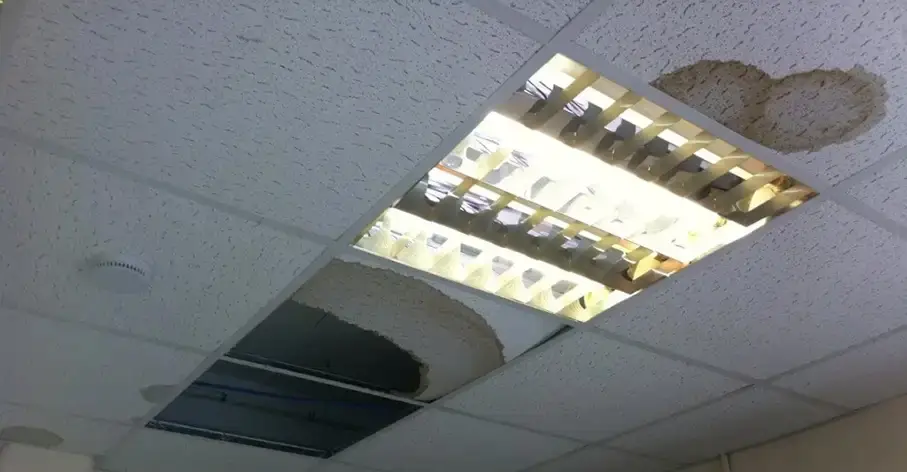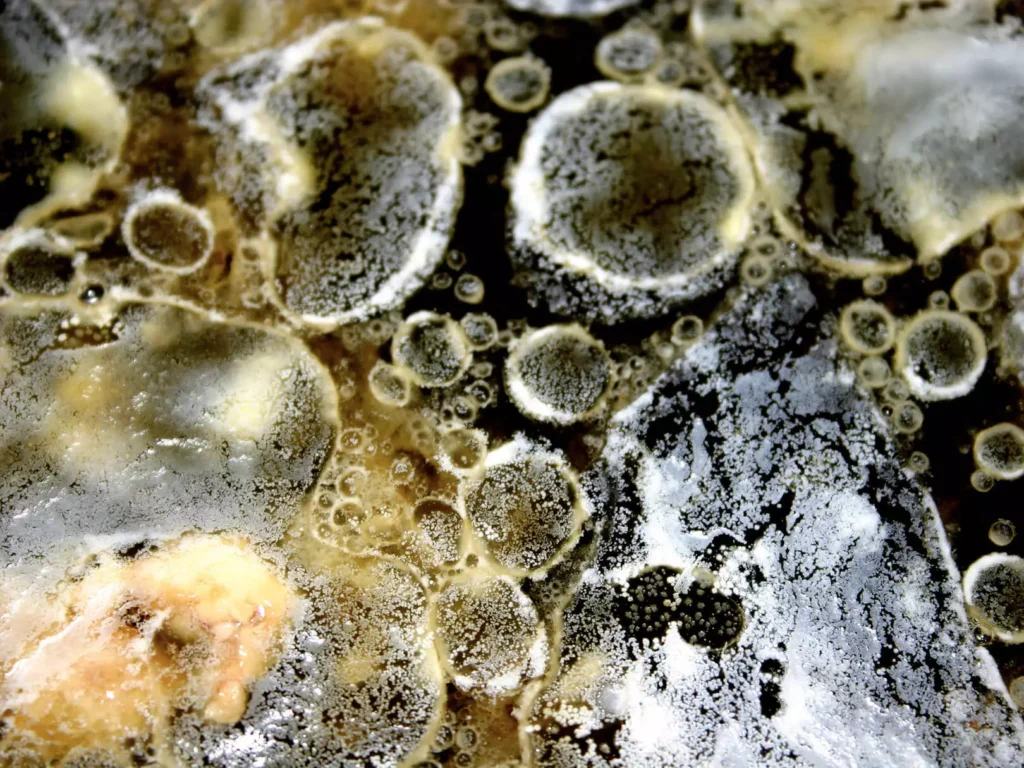The Problem
During shipment from New Zealand, 60 flight cases were saturated by a hurricane and stored in conditions perfect for mould growth. The warm, damp environment facilitated rapid colonisation, with mould thriving on the organic materials within the cases.
Key Issues:
- Scale of Damage: 15 cases were severely affected internally and externally, while the remaining 45 required urgent attention.
- High Moisture Levels: Moisture readings on the cases peaked at 999, the highest measurable level, making drying a critical component of the remediation process.
- Tight Deadlines: The cases were needed for upcoming concerts at Wembley, requiring a fast and effective turnaround.
- Collaborative Environment: We had to coordinate with stage crew managing PAT testing and equipment repairs on-site.
Mould in Commercial Equipment: UK Statistics
Mould damage in equipment can have serious economic implications, with 20-30% of insurance claims for water damage involving secondary mould growth. Prolonged exposure to mould can degrade materials, compromise functionality, and pose health risks.
The Solution
We implemented a multi-step approach to clean, decontaminate, and dry the flight cases, ensuring they were restored to optimal condition.
Step 1: Cleaning and Sanitation
- Antimicrobial Agents: Internal and external surfaces of the flight cases were cleaned using specialised agents to eradicate mould colonies.
- Air Scrubbing: Deployed air scrubbers in the immediate area to prevent airborne mould spores from re-contaminating cleaned surfaces.
Step 2: Odour Removal and Decontamination
- BioSweep Treatment:
- A trailer was set up as a controlled environment for the BioSweep process, ensuring safety and efficiency.
- This five-stage ozone-based decontamination process eradicated volatile organic compounds (VOCs), bio-contaminants, and residual odours.
- Surface Defence Application: BioSweep Surface Defence was applied to create a molecular bond with the cases, turning them antimicrobial for up to a year and preventing future infestations.
Step 3: Efficient Drying
- Drying Chamber: A specialised drying chamber was constructed to maximise energy efficiency and drying potential.
- Advanced Equipment: Desiccant dehumidifiers and pressure drying systems created an environment of low relative humidity, significantly reducing drying time while minimising the risk of reoccurrence.
- PAS64 Compliance: Drying goals adhered to British Standard PAS64, balancing relative humidity, temperature, and moisture content to ensure complete remediation.
The Result
The mould remediation process was completed within the required timeframe, enabling the cases to be used as planned for the Wembley concerts.
Outcomes:
- Mould-Free Equipment: All 60 flight cases were dried, cleaned, and decontaminated to industry standards.
- Future Protection: The antimicrobial Surface Defence application ensured ongoing resistance to mould growth.
- Client Satisfaction: Stage Technologies commended Ideal Response for their efficiency, collaboration, and professionalism.
What the client said:
“Thank you all for the quick and efficient work to get this resolved for us. Such a breath of fresh air to be working with a team who were so efficient and good to work with, and able to accommodate show crew testing gear alongside the works you needed. Please pass on our thanks to all the guys – both on site and in your offices – who made this all happen.“
If your commercial equipment has suffered mould damage, contact us for expert mould remediation services. We’ll help you protect your assets and keep your operations running smoothly.





















